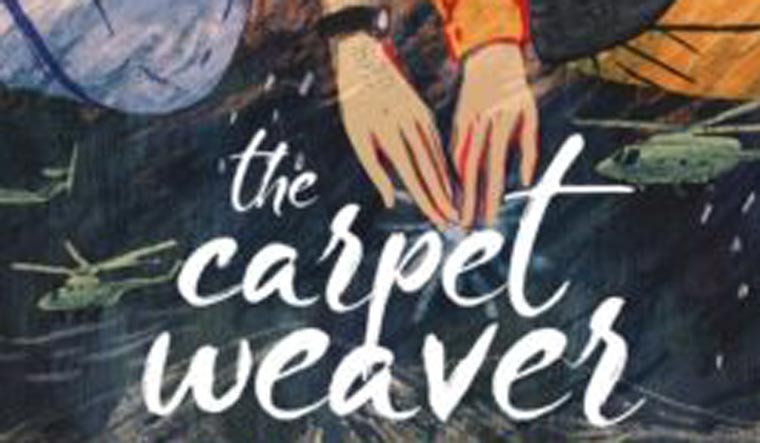There are many reasons to read 'The Carpet Weaver'. The most obvious? It is the first book by a gay writer on same-sex relationship that has come out of war-torn Afghanistan. Nemat Sadat deserves to be read because his voice needs to be heard louder than the din of violence that engulfs the country.
'The Carpet Weaver' is brave, fresh, engaging and brings with it a different Afghanistan.
For a country, where literature and even non-fiction has been limited to a certain period, with the 'T' word dominating discourse, Sadat's book is neither a yearn for a pre-Taliban world nor one that tries to make sense of the country ever since the emergence of Taliban. It is a story of forbidden love, one that might have never been written or heard.
Rejected by 450 agents, the book finally found itself a home in India with Penguin Random House agreeing to publish it. “It is a record,'' says Sadat. “In United States, you have to affirm the dominant culture of imperialism to justify US militarism. The news creates the dominant culture, and the viewers and the readers perpetuate it. Then, they create and market it.''
There is a certain formula for a book that comes out of Afghanistan, believes Sadat, adding that a gay-themed book does not fit the bill. "Even liberals don't want to hear it,'' he says. "If you show women as oppressed, you are not painting a new narrative. If you show Afghan and Muslim women as constantly being victims and not breaking their chains, whether it is patriarchy, whether they are forced into a certain sexuality, it is not sexy enough for an American audience.''
Sadat had to battle more than the “demons'' in his own head to get the book, written over a period of 11 years, published. “The day I started writing was the day after Barack Obama clinched his nomination,'' he says. “It inspired me. If a biracial black man won the nomination for a major party in the United States, if he can do that. I can write the novel.''
But it wasn't easy. There was no one before him. Sadat was the first Afghan to come out as gay to his family when he was 30. When he was 23, he had a girlfriend who he took to a Britney Spears concert. It took him seven years, after he admitted to himself that he was gay, to find the courage to tell his family. It was Christmas. And his niece's birthday. “My parents still pushed forced marriage. When I came out, they asked other people to start meddling,'' he says.
The book begins on a powerful note. 'The one thing I know is that Allah never forgives sodomy,' my godfather Zaki Jaan pronounced. It is Kanishka's sixteen birthday and he is at the cusp of manhood. Girls from every family are vying for his attention. He, however, only has eyes for his best friend Maihan. This love is forbidden, powerful, with no role model'. “All the romances in the canons of Afghanistan literature...involved heterosexual couples,'' writes Nemat. And yet, it is this love—unrequited—that is at the heart of the book.
The book is as much a story of Afghanistan as it is about Kanishka and his family. It is the story of survival as Kanishka finally flees to America. Sadat's story, too, is similar. His father is a Communist, a parallel to his own story. “My father told me not to write my book,'' he says. This pain of being rejected, of not being male enough—the humiliation of it, as well as the pain—is palpable. From Kanishka being 'discovered' in school to the bullying and name-calling that followed are cruel, disturbing and impossible to forget.
His mother, however, is supportive. “My mom is the only one who has read it. Even though she supports LGBT rights, she still wishes I wasn't gay. Because I don't have a lover, she is concerned,'' he laughs. His coming out of the closet, however, has helped others find love.
Book: The Carpet Weaver
Author: Nemat Sadat
Published by: Penguin Random House



